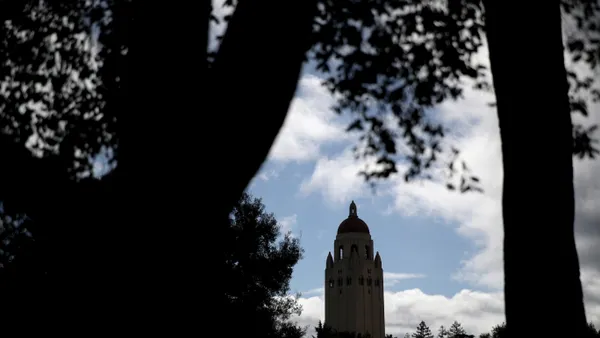Dive Brief:
- The 11th U.S. Circuit Court of Appeals found that a government contractor violated the Fair Labor Standards Act when it automatically deducted one hour's wages from workers' overtime pay to account for a meal break (Gelber, et al. v. Akal Security, No. 18-14496 (11th Cir., Sept. 30, 2021)).
- The company, Akal Security, repatriates individuals who have been removed from the U.S. by flying them to their home countries, according to court documents. It employs security personnel to staff the flights to ensure safety during travel. Safety staff have few duties on return flights, once detainees have been returned. Akal automatically deducted one hour from each shift as a meal period during these flights, according to court documents, calling the one-hour meal break mandatory and unpaid; it instructed workers to complete no work during the time. The company recorded no meal periods, the court noted — it deleted one hour from each security personnel's timesheet instead.
- Several security guards sued for unpaid wages. A district court ruled in favor for the plaintiffs initially, but later decided the company acted in good faith. On appeal, the 11th Circuit considered "whether Akal was entitled to make the challenged meal-period deductions from otherwise compensable work." The court ruled that it was not entitled to do so, and that Akal's policy violated the FLSA.
Dive Insight:
The U.S. Department of Labor does generally allow employers to deduct pay for meal breaks. It stipulates that workers must be "completely relieved from duty" during the meals — the employee isn't truly relieved from work if the individual is asked to perform duties while eating.
The Gelber court held that Akal needed to show its security workers were "completely relieved from duty for the purposes of eating regular meals." Akal argued that the central question was whether the security workers had an hour during each flight when they were totally off duty.
The court disagreed. Akal acknowledged that idle time in flight was compensable overtime work. "It follows, then, that the meal breaks must also be compensable — because, so far as we can tell, nothing distinguishes the ‘meal breaks' from other idle — but compensable — time on the flight." To prove that meal breaks weren't compensable time, Akal needed to have proof other than the fact that the security workers were idle on the flights.
Akal's analysis came from the wrong premise, the court said. It said its deduction policy was fair because at some point during the flights, the workers had at least one hour when they were free of duties. By that logic, the company holds that the security guards weren't performing work on the flights. But the company had already acknowledged their idle time was compensable work, the court said.
The specifics of this case — that "the mere fact of [the workers'] waiting (or traveling) is work" — make it unique, the 11th Circuit said. The court pointed out that employers can sometimes deduct meal periods during travel; DOL guidance specifies that it's possible. But employers must demonstrate that drivers, pilots or anyone assisting in travel take meal breaks by ceasing their affirmative duties to eat.













